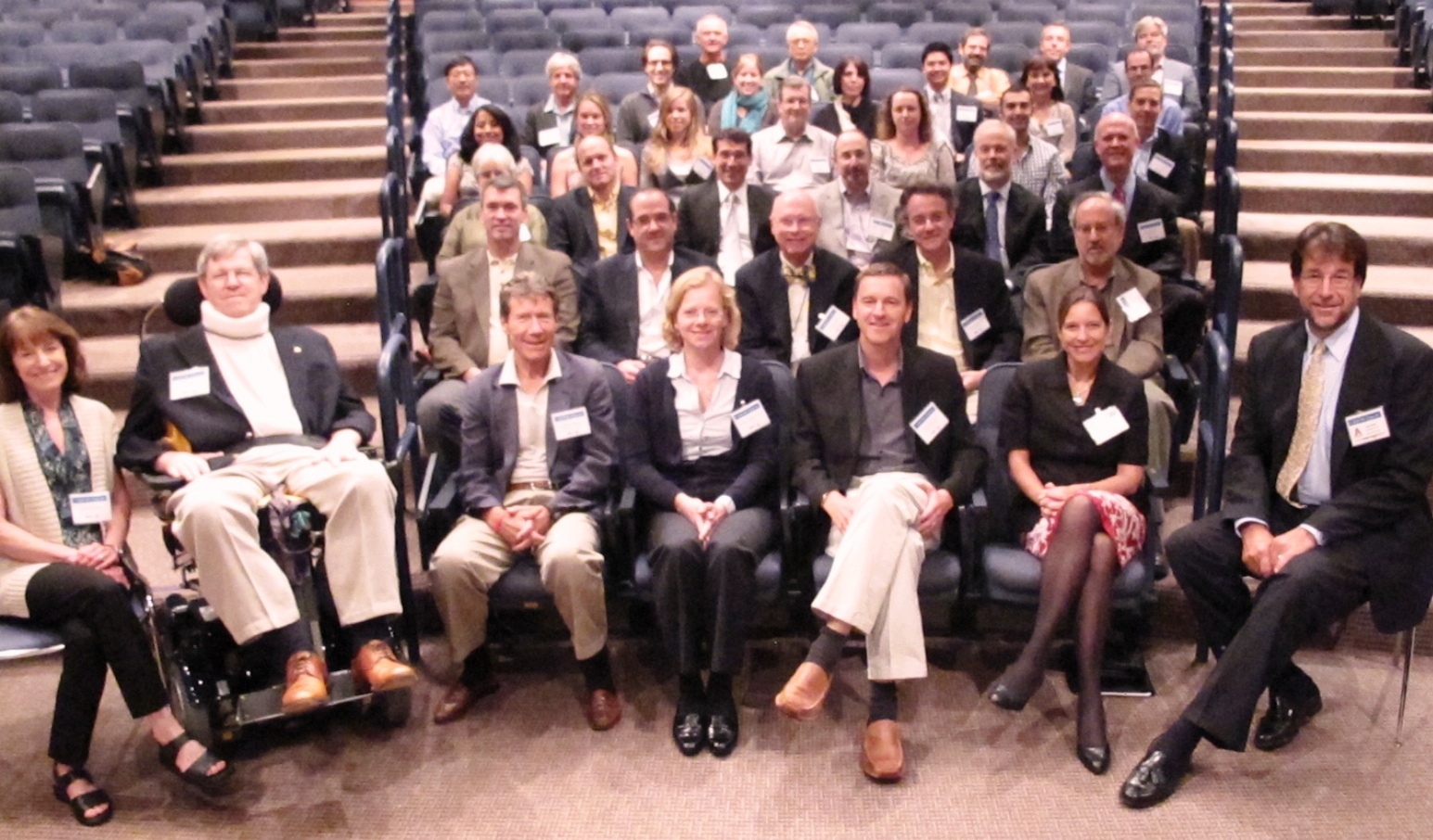|
- By Jenica Lancy, Director of Marketing and Communications
(October 12, 2011 - Los Angeles, California)
The California ALS Research Network held its second annual California ALS Research Summit on September 30 and October 1 in Los Angeles on the UCLA campus. The purpose of the Summit is to create discussion about ALS, research and funding as well as fostering networking among scientists, clinicians, biotech companies and ALS advocates. This two-day meeting included more than 50 California leaders in ALS research as well as representatives from biotech companies, Adeona Pharmaceuticals, Avanir, Cytokinetics, Iperian, ISIS, and Knopp-Biosciences; California Institute for Regenerative Medicine (CIRM); and The ALS Association. Building on last year's program of protein aggregation, stem cells and molecular therapies, the theme this year was more challenging, from both a scientific and funding perspective, on the subjects of biomarkers and translational research. The group also dedicated time to a discussion of the many important research developments during the past year.
“This is a particularly exciting time for the research field with the recent identification of new genes linked to ALS and FTD,” said Lucie Bruijn, Ph.D., Chief Scientist, The ALS Association. “Meetings such as these provide an excellent forum for expertise to be shared and new collaborations to be formed.”
“The presentation of several new therapeutic agents for the treatment of ALS, that are in trials or going to trials soon, was very encouraging,” shared Martina Wiedau-Pazos, M.D., Co-Director, ALS Center, UCLA. “Also, finding biomarkers in several research areas is making headway but still poses a challenge.”
“The feeling of having all of us together in the same room is so exciting, and having the time to talk together about the presentations is crucial,” said Clive Svendsen, Ph.D., Director, Cedars-Sinai RMI. “The speakers were outstanding. Dr. Seward Rutgove’s, winner of the Prize for Life Award, presentation about neurophysiology was very important as was Bob Bowser’s talk about biomarkers and the blood. I certainly went back with new ideas.”
Over the course of the two-day meeting, attendees participated in scientific presentations, plenary sessions and panel discussions. At the conclusion, the spirit among the attendees was one of promise and shared conviction.
"It was exciting to watch the enthusiasm with which the scientists exchanged information and views on the most recent ALS research developments,” said Jim Barber, a member of the network and Co Chair of the California ALS Advocacy Committee. Barber who also has ALS, was in attendance with his wife Cheryl. "There have been more ALS research developments in the last five years than there have been in the previous 150 years since ALS was identified," he said.
Last year’s Summit resulted in the creation of a white paper which was published in both a lay version that was submitted to members of the California Legislature in March 2011 and a scientific version which was published by the journal Neurodegenerative
Disease Management, Volume 1, Issue 4 in July 2011. The goal this year will be another white paper, which will also include some discussion about recently identified gene mutations in ALS. “Gene mutations will have a strong impact on future ALS research,” said Wiedau-Pazos. “Next year's Summit, which will be held in either San Diego or San Francisco, will focus on genetics. By then, we will probably understand much better the role of these new genes in the disease process.”
“What we would like to do now is give the Network more of an infrastructure. There should a mechanism to continue the administrative support and funding methods throughout the year,” said Svendsen. “I was inspired by the presentation of CIRM’s John Thomas about how we can learn to raise money if you have the will to do it.”
“One of the strengths of the network is to bring people together,” said Svendsen. “For example, last year’s meeting provided an invaluable opportunity for investigators, such as Steve Finkbeiner who was previously focused on Huntington's disease, to become familiar with ALS. The Network supports his interests to extend his expertise into the ALS field. We have been successful in drawing new talent and encourage anyone who can to bring their research to collaborate with the Network.”
Jim Barber summarized the spirit of the people who are living with ALS and their loved ones: "These are the kinds of people we want on our side in this bare knuckles fight we are in with ALS,” he said. "We all need hope, but hope is not a strategy. Working with these people is."
The California ALS Research Network is a group of experienced researchers, investigators and clinicians in ALS and related fields as well as ALS patient advocates whose mission is to find effective treatments and a cure for ALS; to facilitate development and implementation of the best possible ALS research program in California; and to put California in the forefront of ALS research world-wide. The Network and Summit are products of the advocacy efforts of the California ALS Advocacy Committee, which consists of the four California Chapters of The ALS Association. For more information, please visit –californiaalsresearchnetwork.org.

Members of the California ALS Research Network, and some of the participants of the 2011 California ALS Research Summit
|

